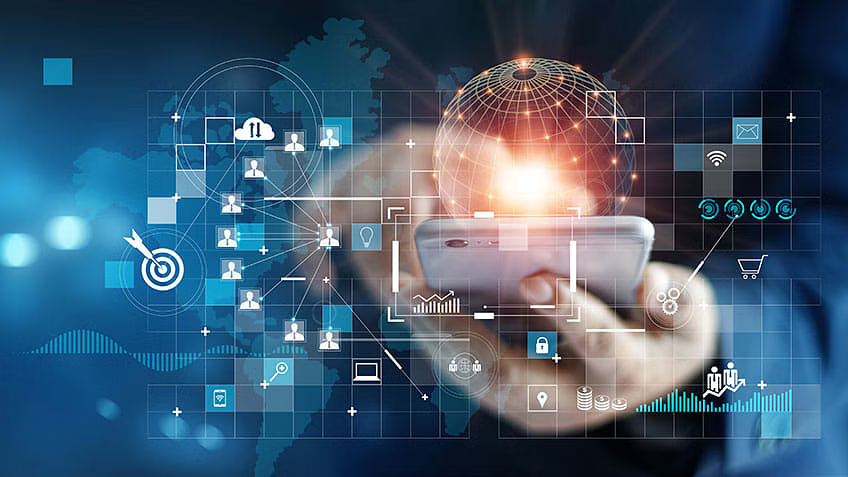The Evolution of Technology: Shaping the Future
The Rise of Digital Technology
Digital technology has transformed nearly every aspect of modern life. From the way we communicate to how we work and entertain ourselves, digital advancements have created a more connected and efficient world. The rise of the internet in the late 20th century marked the beginning of a digital revolution, enabling instant access to information and global communication. Today, smartphones, social media, and cloud computing have become integral parts of daily life, allowing us to stay connected and productive from virtually anywhere.
The Impact of Artificial Intelligence
Artificial Intelligence (AI) is one of the most significant technological developments of the 21st century. AI refers to the simulation of human intelligence processes by machines, particularly computer systems. These processes include learning, reasoning, problem-solving, and decision-making. AI is already being used in various industries, from healthcare and finance to transportation and entertainment. For example, AI algorithms power virtual assistants like Siri and Alexa, while machine learning models are used to predict market trends and personalize user experiences. As AI technology continues to advance, its potential to revolutionize industries and improve efficiency is immense.
The Growth of the Internet of Things (IoT)
The Internet of Things (IoT) is the network of physical objects—devices, vehicles, appliances—that are embedded with sensors, software, and other technologies to connect and exchange data with other devices over the internet. IoT has expanded rapidly in recent years, with billions of connected devices now in use worldwide. From smart homes with connected thermostats, lighting, and security systems to industrial applications that monitor equipment performance, IoT is enhancing convenience, efficiency, and safety. The future of IoT promises even more integration, with smart cities and connected transportation systems on the horizon.
The Influence of Blockchain Technology
Blockchain technology, best known for powering cryptocurrencies like Bitcoin, has far-reaching implications beyond digital currency. At its core, a blockchain is a decentralized digital ledger that records transactions across multiple computers so that the record cannot be altered retroactively. This technology ensures transparency, security, and trust in digital transactions. Beyond finance, blockchain is being explored for use in supply chain management, healthcare, voting systems, and more. Its ability to provide secure, transparent, and tamper-proof records makes blockchain a powerful tool for industries seeking to reduce fraud and increase accountability.
The Future of Augmented Reality and Virtual Reality
Augmented Reality (AR) and Virtual Reality (VR) are technologies that are changing the way we interact with the digital world. AR overlays digital information onto the real world, enhancing our perception of reality. Examples include apps that allow users to visualize how furniture would look in their home or games like Pokémon GO that bring virtual elements into physical spaces. VR, on the other hand, creates immersive digital environments that users can interact with, often using special headsets. VR is being used in various fields, from gaming and entertainment to education and training. As AR and VR technologies become more advanced and accessible, their applications in everyday life are expected to grow significantly.
The Role of Big Data in Decision-Making
Big Data refers to the vast volumes of data generated every second from digital interactions, transactions, and sensors. This data, when analyzed and interpreted, can provide valuable insights into patterns, trends, and behaviors. Businesses and organizations use Big Data to make informed decisions, improve operations, and deliver personalized services. For instance, retailers analyze customer data to optimize inventory and tailor marketing campaigns, while healthcare providers use data analytics to improve patient outcomes. As data continues to grow in importance, the ability to effectively manage and leverage Big Data will be crucial for success in the digital age.
The Challenges and Ethics of Emerging Technologies
As technology continues to evolve at a rapid pace, it brings with it a host of challenges and ethical considerations. Issues such as data privacy, cybersecurity, and the impact of automation on employment are at the forefront of discussions about the future of technology. Moreover, the development and deployment of AI and other advanced technologies raise questions about accountability, bias, and the potential for misuse. It is essential for society to address these challenges proactively, ensuring that technological advancements benefit everyone while minimizing potential risks.
Conclusion: Embracing Technological Innovation
Technology is the driving force behind many of the changes shaping our world today. From AI and IoT to blockchain and Big Data, emerging technologies are revolutionizing industries, enhancing our daily lives, and offering new opportunities for innovation. However, as we continue to embrace these advancements, it is crucial to remain mindful of the ethical and societal implications. By fostering responsible innovation, we can ensure that technology continues to be a positive force for progress, shaping a future that is both technologically advanced and socially responsible.

